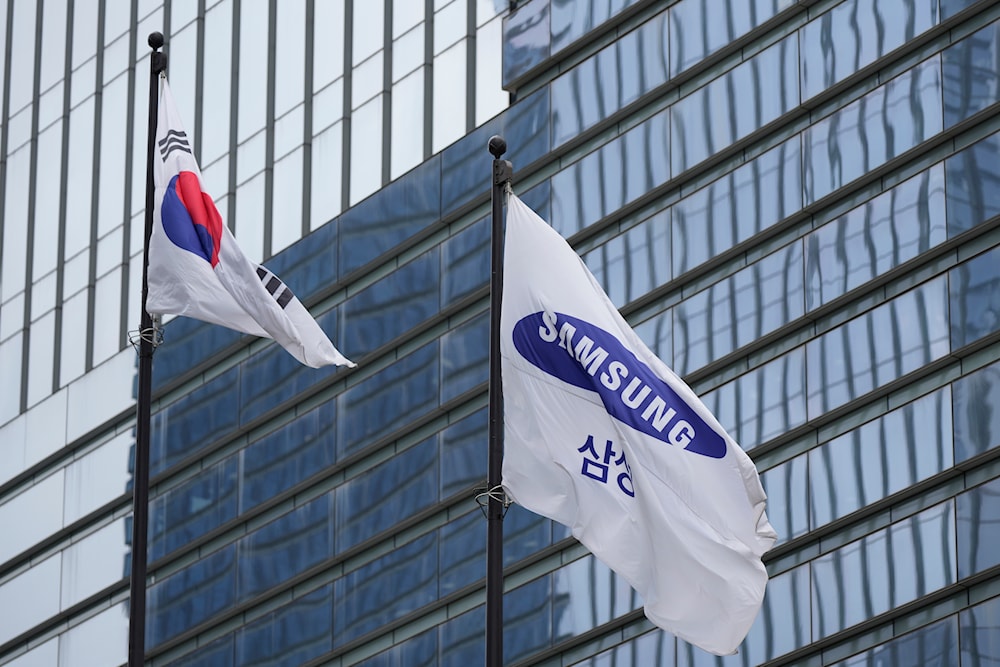Samsung workers begin three-day general strike over pay
Workers at South Korean tech giant Samsung begin a three-day general strike over pay and benefits as the tech giant scores large profits.
-

A flag of Samsung, right, and South Korean national flag are seen outside the Samsung Electronics' Seocho building in Seoul, South Korea, on July 5, 2024. (AP)
On Monday, workers at the South Korean tech giant Samsung began a three-day general strike over pay and benefits, the head of a union representing tens of thousands of employees told AFP, warning the action could impact memory chip production.
"The strike has started from today," Son Woo-mok, head of the National Samsung Electronics Union, told AFP.
"Today's general strike is just the beginning... Recalling why we are here, please do not come to work until July 10th and do not receive any business calls," he told the workers.
Thousands of workers gathered outside one of the world's largest memory chip maker's foundry and semiconductor factory in Hwaseong, wearing jackets and ribbons saying "fight with solidarity".
Samsung management has been engaged in negotiations with the union since January, with the two sides failing to narrow differences on benefits and a rejected 5.1% pay raise offer from the firm.
More than 1/5 of workforce striking
Around 5,200 people from factory facilities, manufacturing, and development joined the protest, the union revealed. "Do you still not think this will affect their production line?" said Lee Hyun-kuk, vice president of the union.
Last week, the union, which has more than 30,000 members, or more than a fifth of the company's total workforce, announced the three-day strike.
The company's first collective action, which went decades without unionization, follows a one-day walkout in June. "We are now at critical crossroads," the union said in an appeal sent out to members last week, urging them to support the strike.
"This strike is the last card we can use," it said, saying that workers at the company needed to "act as one." "I'm really excited," one union member and protester told AFP.
"We're making history."
Semiconductors are considered the lifeblood of the global economy because they're used in everything, appliances, phones, cars, and weapons. That said, the demand for advanced chips that power artificial intelligence systems has skyrocketed thanks to the success of ChatGPT and other generative AI products.
According to the trade ministry's latest figures, semiconductors are South Korea's leading export, hitting $11.7 billion in March, their highest level in almost two years, accounting for a fifth of South Korea's total exports.

 3 Min Read
3 Min Read








